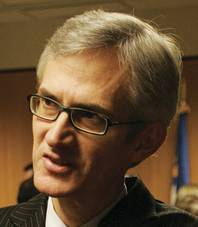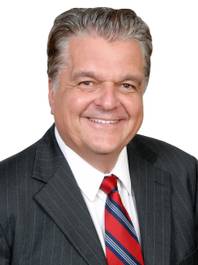Wednesday, Dec. 30, 2009 | 2 a.m.
Related Document
- This is the document that members of the Committee on Community Priorities will see Jan. 7. The Sun wanted to see how readers would vote, so these same options are available in the polls below. Each polls displays the number of votes that can be cast in that category.
- Committee on Community Priorities member voting packet (.pdf)
Polls
- Fees/Penalties/Taxes
- Resource/Staff/Program Reallocation or Reduction: Staffing/Resource Reductions
- Consolidation: Within County Operations
- Consolidation: With Other Municipalities/Agencies
- Legislative Issues
- Resource/Staff/Program Reallocation or Reduction: Departmental Efficiencies
- Technology
- Union-Related Issues/Salaries/Overtime
- Resource/Staff/Program Reallocation or Reduction: Satellite Offices
- UMC
- Outsourcing/Vendor/Lease Issues
- Resource/Staff/Program Reallocation or Reduction: Program/Service Reductions
- Other Issues – General Fund Departments
Clark County’s Committee on Community Priorities
- Assemblyman Morse Arberry Jr., interim president and CEO of the Las Vegas-Clark County Urban League
- Alex Dixon, director of planning and analysis for Paris Las Vegas, Bally’s and the Rio
- Keen Ellsworth, lawyer, business owner and member of the Las Vegas Planning Commission
- Michael Holloway, engineer and managing principal of Poggemeyer Design Group Inc.
- John Marchiano, lawyer, former city attorney for Henderson
- Dr. John Ruckdeschel, director and CEO of Nevada Cancer Institute
- William Stanley, director of organizing, International Union of Elevator Constructors
- Bobbette Bond, executive director of the Nevada Health Care Policy Group and director of public policy for the Culinary Health Fund
- Dr. Nancy Brune, director of Research and Policy at UNLV’s Institute for Security Studies
- Cornelius Eason, president of Priority Staffing USA and Urban Chamber of Commerce of Las Vegas board of directors
- Al Martinez, president of Service Employees International Union Local 1107
- David Peter, employee representative for Service Employees International Union Local 1107
- Roland Sansone, real estate developer and managing member of Sansone Companies
- George Togliatti, vice president of security, surveillance and safety at Mandalay Bay, former director of the Nevada Department of Public Safety
- Carole Vilardo, president of the Nevada Taxpayers Association
Sun Coverage
- Clark County priorities panel meeting in Las Vegas (12-16-2009)
- ‘Longevity pay’ costs millions in county (12-10-2009)
- UMC’s financial condition spurs talk of sale (11-27-2009)
- Layoffs should hit poorly run departments, Collin says (10-4-2009)
- Experts to advice, provide cover, on cuts (8-30-2009)
- Shortfall looms large as fire union holds out (4-23-2009)
- No concessions yet from firefighters (4-12-2009)

Rory Reid

Steve Sisolak
After 40 hours of hearings to sort through Clark County’s budget woes, the key issue that emerged for most of the 15 carefully chosen community representatives was the high cost of county employees, particularly firefighters.
“The only way to truly cut costs in a general fund of $1.5 billion when the payroll (wages and benefits) is over $1.2 billion is to cut staff, hours, salaries and/or benefits,” the Committee on Community Priorities’ preliminary report says, adding: “The rise in employee compensation is unsustainable.”
Regarding firefighters, the committee noted that “$180,000 compensation (wages plus benefits) for the average (Fire Department) employee is outrageous, even outside this economic downturn.”
But that dollar figure has now been eclipsed.
County officials said Tuesday that the average salary and benefits package for firefighter union employees was $199,678 for the fiscal year that ended in July. The average salary alone was $128,026.
Given those figures, it’s easy to understand why the fire department gets the most mentions in the committee’s 177 recommendations for internal changes in county government, and 29 suggestions to address county-state issues.
The firefighters and their union were well known to the committee because of newspaper articles about how the union failed this year to offer salary concessions that met with county approval, said committee member Carole Vilardo, president of and lobbyist for the Nevada Taxpayers Association.
University Medical Center’s drain on county coffers is also a topic that has been reported on extensively for several years, so it also got a lot of attention from the committee.
Last fiscal year UMC lost about $70 million, and this year it’s expected to be worse. That’s because overhead costs are higher and because the county is mandated to cover expenses for patients who cannot pay.
So one recommendation is to find a way for the county to wash its hands of the hospital. Selling it is one suggestion. Others include creating a committee to oversee hospital efficiency and quality, and a review of management and hospital costs.
The committee’s list is to be shaped into a blueprint from which commissioners and county staff will work to address a $120 million deficit next year. The hope is that it will also produce fundamental changes in how some departments work.
Committee members will prioritize their recommendations at a final meeting Jan. 7. They will also vote on which county services are the most valuable, noting whether services should continue or be reduced.
In effect, committee volunteers are providing political cover for county commissioners and doing the county’s departmental managers’ jobs for them. Around midyear, County Manager Virginia Valentine asked department heads to suggest cuts amounting to 5 percent of their budgets. Instead, the average cut submitted among all departments was only 2.6 percent.
Many of those same department chiefs attended the committee’s half-day meetings, during which the county’s assistant managers presented information about each department. Department chiefs responded when asked for more information.
Committee member Alex Dixon said the group’s eight meetings since August provided a crash course in how local government works, and he was surprised by what he learned.
One of the most important revelations, he said, came when questions were asked about county salaries.
It highlighted the need for county commissioners to be good stewards of the public coffers.
Dixon, director of planning and analysis for Paris Las Vegas, Bally’s and the Rio, said even if county staff wants to change merit pay or longevity pay or any kind of benefit program, nothing will even be attempted without the say-so of elected commissioners.
“Management is handicapped by the goals or willingness of the county commissioners,” Dixon said. The county’s staff works specifically to meet the goals of commissioners. So if commissioners don’t want to limit union workers’ pay, county staff won’t even ask for limitations during contract negotiations.
“It’s not that firefighters or police or whomever don’t deserve it, it’s just that we have to reset expectations,” Dixon also said. “We cannot provide the same pay that we did two or three years ago.”
Some across-the-board suggestions for salaries and benefits included eliminating or reducing longevity pay and employees’ selling of sick-leave hours back to the county; adjusting cost-of-living wage increases to a local, not national, index; and fighting for changes in union contracts that allow the county to reduce pay under “extreme financial deficits.”
Dixon also criticized the current merit-pay system for county service employees, saying the system “doesn’t make sense.” It gives employees 4 percent raises for jobs well done or nothing for not-so-good. There is no in-between. Dixon would like to see merit distributed on a bell curve — 10 percent of employees would get 4 percent raises, 10 percent would get nothing, and the rest would get somewhere in between.
Other recommendations and comments ran the gamut, from suggesting charging parents for probation services to consolidating assessor’s office services into one place. They included:
• Consolidating information technology staff between departments.
• Consolidating municipal courts in Henderson, North Las Vegas and other outlying areas.
• Outsourcing phone systems.
• Increasing document fees in the Recorder’s Office.
• Getting the Legislature to change the way the property tax cap works.
• Raising license fees.
The committee also offered some possible general guiding principles, such as: “The investment in our parks goes to the soul of the community.”
Another is: “Children must never be compromised in the budgeting process. It is cheaper to correct the problem in their youth than incarcerate them as adults.”
Dixon, who said his salary had been cut because of the bad economy, added that he knows the importance of the social safety net that some county departments provide. But he said he sat through committee meetings wondering how such services would be maintained if salaries keep rising.
“The further you peel back the layers, you get to the point where you’re saying, ‘We’re going to be cutting social services in order to uphold 6.5 percent increases in wages?’ ” Dixon said. “It was very eye-opening.”
Dixon, whose parents worked in the public sector, said he comes away from the committee hearings convinced that if the county’s employee compensation issues aren’t addressed, “we’re going to be back here doing this same thing in three years.
The concern is that this will wind up being yet another task force that does its work only to have its recommendations shelved.
Rory Reid, county commission chairman and a gubernatorial candidate, said that won’t happen in this case.
“The work they did is going to be seriously considered,” he said. “They came up with suggestions and we need to follow up and identify where money is to be saved and where efficiencies can be gained. And we should do it, for no other reason than for making the county more fiscally responsible.”
Commissioner Steve Sisolak agrees.
“I know how hard this group worked. I went to or watched every meeting,” he said. “Most of them didn’t have to think about allegiances or loyalties; they thought for the good of the county. And if we don’t take advantage of their willingness to do all this work, we will be making a huge mistake.”

Join the Discussion:
Check this out for a full explanation of our conversion to the LiveFyre commenting system and instructions on how to sign up for an account.
Full comments policy